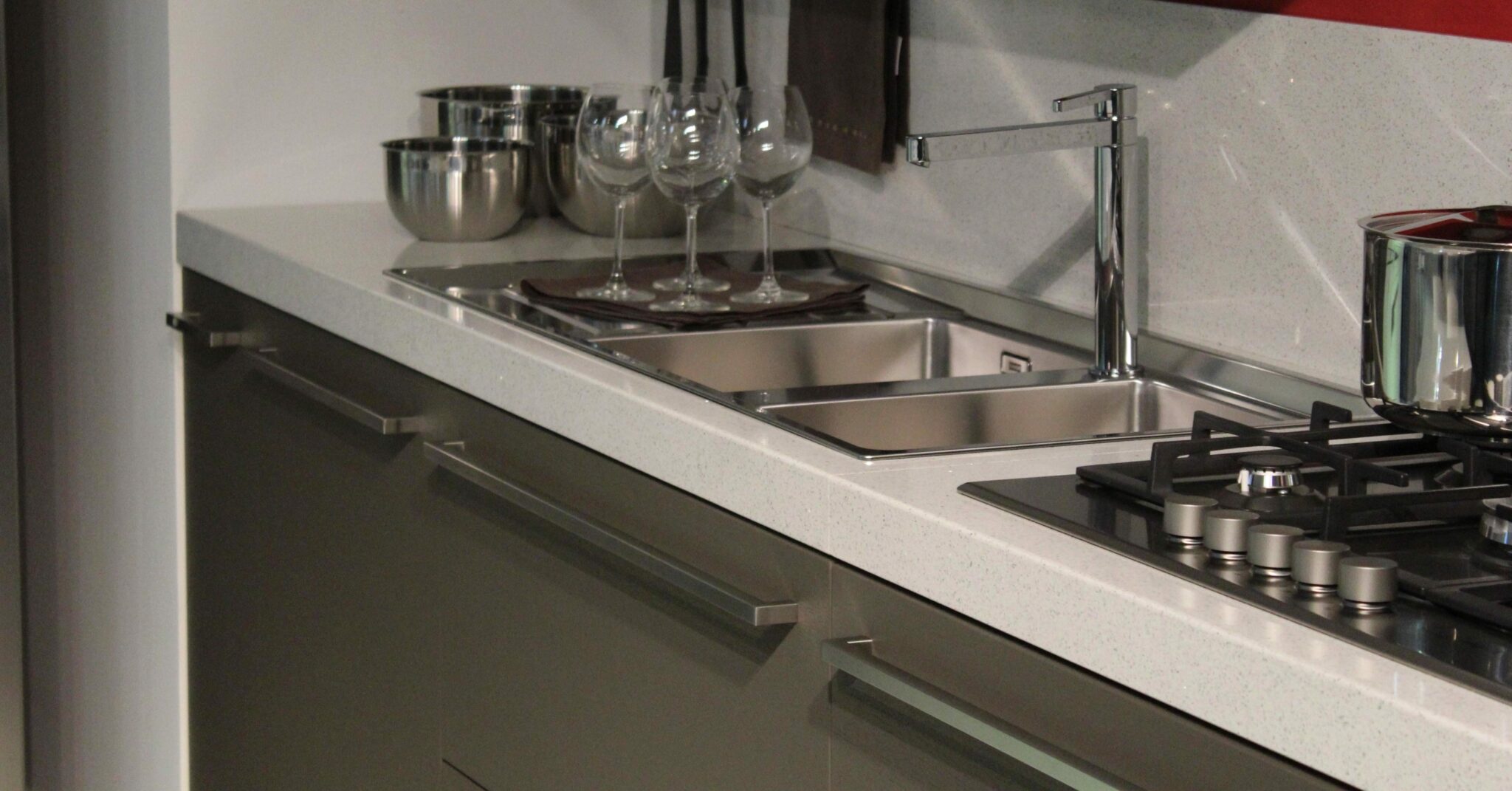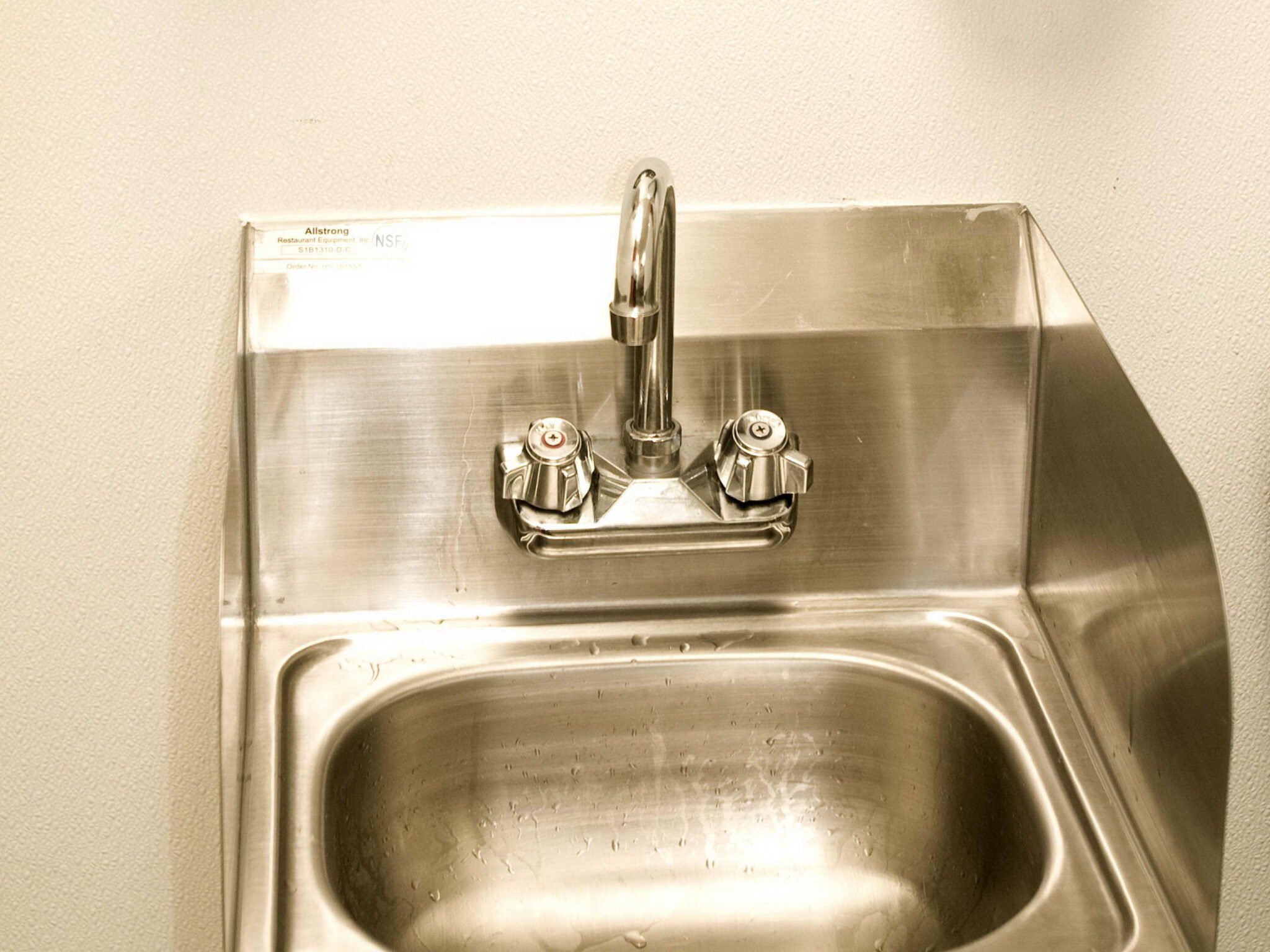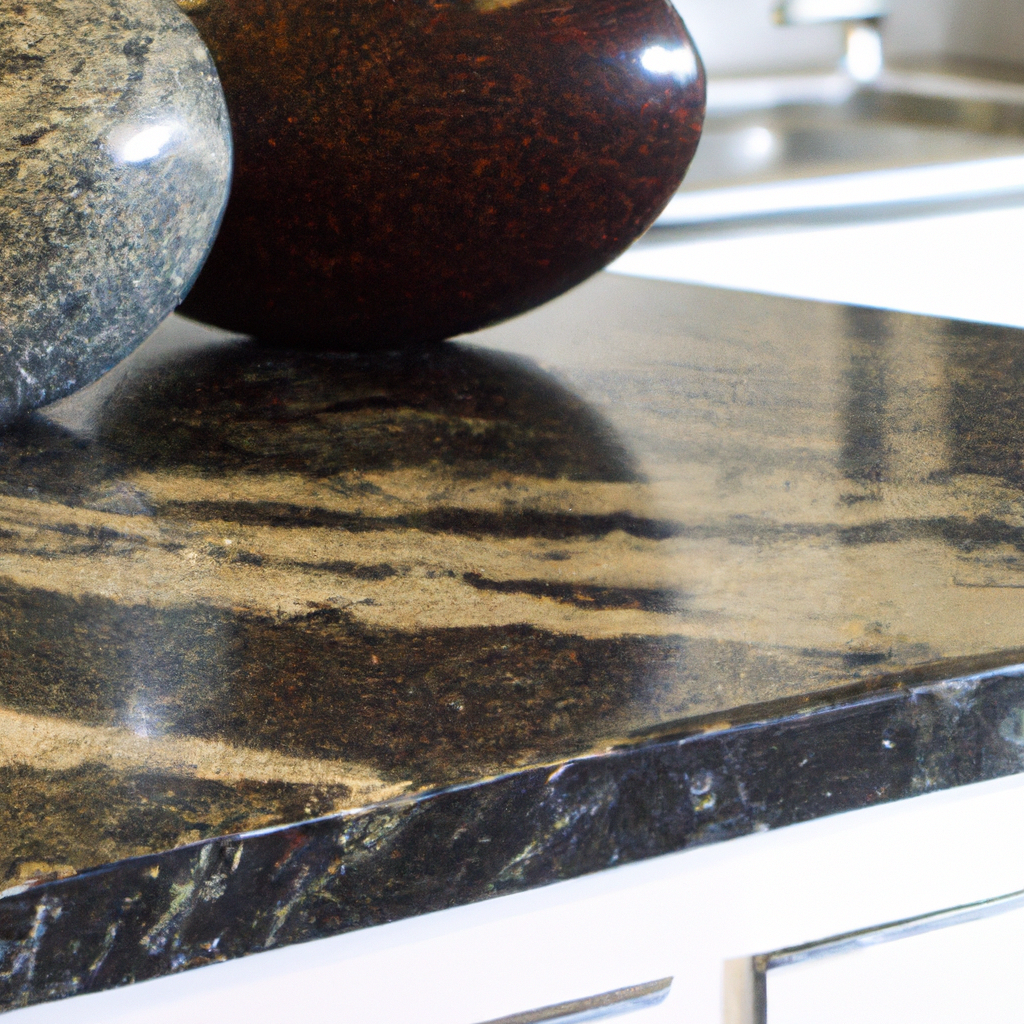Key Takeaway:
- Stainless steel kitchen hardware is more durable than brass: Stainless steel is resistant to rust, corrosion, and tarnishing, making it a better material for hardware that is exposed to water and other elements in the kitchen.
- Brass kitchen hardware has aesthetic appeal: While brass may not be as durable as stainless steel, it offers a unique and elegant look for kitchen hardware. It also ages well and can develop a patina over time.
- The choice between stainless steel and brass kitchen hardware ultimately depends on personal preference and intended use: Consider factors such as durability, maintenance, and aesthetics when choosing between stainless steel and brass for your kitchen hardware.Do you worry 'bout kitchen hardware in your home? Stainless steel or brass? Which is better for lasting longer? Read this article and pick kitchen hardware with confidence!
Introduction
Stainless Steel and Brass are two common metals for kitchen hardware, like faucets, pipes, and fittings. Each has its own advantages and properties.
For durability, Stainless Steel takes the lead. It's hard, strong, and resistant to corrosion, making it great for high-pressure and vibrating jobs. Its tight seal is ideal for sanitary fittings like Vacuseal, Legris, and A-Lok compression fittings.
Brass is more pliable than Stainless Steel, so you can make leak-proof joints easier. It also has a higher thermal expansion coefficient, so it's great for water hammer and acidic liquids. Plus, it resists petroleum and saltwater, making it perfect for marine environments.
Although Stainless Steel is pricier, it does give more benefits, specially in terms of durability, hardness, and tensile strength. Brass fittings and pipes are lead-free and contain chromium, nickel, and zinc, making them more malleable and corrosion-resistant.
In the end, which metal you choose for your kitchen hardware will depend on your needs, wants, and budget. Pipingmart is a B2B portal that offers industrial piping products, info, and news to the business world. They have different grades of brass and stainless steel materials for piping and fittings, plus other industrial items.
Durability of Stainless Steel Kitchen Hardware
When it comes to kitchen hardware, durability is key. Stainless steel hardware is a popular choice due to its resistance to corrosion and sleek, modern appearance. In this section, we’ll explore the durability of stainless steel kitchen hardware in detail.
- First, we’ll discuss its resistance to corrosion, which is a major factor in maintaining the longevity of your kitchen hardware.
- Then, we’ll examine its sleek and modern appearance, which is a major selling point for many homeowners.
- Next, we’ll touch on the potential downside of stainless steel hardware, which is its susceptibility to scratches.
- Finally, we’ll discuss the visibility of fingerprints and smudges on stainless steel hardware, which can be a concern for many homeowners.
Resistance to Corrosion
Durability is key when it comes to kitchen hardware, especially in busy places like kitchens. Two popular and corrosion-resistant materials are stainless steel and brass.
Stainless steel is great for kitchens because of its high resistance to corrosion and liquids. It's also strong and malleable, which is perfect for forming into various shapes and sizes. Think: tool and machine parts.
Brass is scratch-resistant and great for high-traffic areas. But it's not as corrosion-resistant as stainless steel and not suitable for hot liquids.
If corrosion-resistance and durability are your priorities, stainless steel is the way to go for kitchen hardware.
Pro-tip: Contact Fluid Controls' sales team for more info on the best kitchen hardware material that meets your industry needs.
Sleek and Modern Appearance
When it comes to kitchen hardware, stainless steel and brass present a sleek, modern look. But, they differ in durability.
Stainless steel is made from a strong alloy of iron, carbon, copper, manganese, and chromium. It's resistant to corrosion and can survive exposure to water and moisture. Plus, it's malleable – easy to shape into pieces or form airtight seals. And, it's great for high pressure and vibration applications.
Brass, on the other hand, is an alloy of copper and zinc. It's softer than stainless steel and can be scratched or marred easily.
If you need lasting durability, stainless steel is the way to go. Use the right installation tools and techniques to avoid scratches or damage.
Prone to Scratching
Stainless steel kitchen hardware is very durable. But, it can get scratched easily. This is a worry for those buying kitchen hardware. Compared to brass kitchen hardware, the better choice depends on individual taste and business requirements.
Stainless steel is made of materials like buttweld, Parker and Brkert. These materials are malleable and rust-resistant. Even so, stainless steel can still be scratched, and soldered connections and sleeves can wear.
Brass hardware is softer than stainless steel and scratches more easily. But, it has better rust-resistance, soldered connections and sleeves. It also adds a classic and aesthetic look to any kitchen. It is often made of copper tubing, which needs regular cleaning to keep its shine.
Business people must think about personal taste and industry needs when choosing. Stainless steel may last longer, but brass may be better for those who care about looks and rust-resistance.
Pro Tip: It is important to consider how much wear and tear the kitchen hardware will have, when deciding between stainless steel and brass. This will ensure the chosen material is perfect for your needs.

Visibility of Fingerprints and Smudges
Fingerprints and smudges on stainless steel kitchen hardware are a common problem. But don't worry; the durability of stainless steel outweighs this minor issue. It is a popular material in the hardware industry because it can be molded, is resistant to corrosion and can be welded. It is used in many industries like construction, automotive and healthcare because it can handle high temperatures.
Brass is not as long-lasting as stainless steel. It corrodes over time, is more likely to get scratched and damaged, which makes it unsuitable for high traffic areas like kitchens. Stainless steel is the better choice for kitchen hardware because of its durability and longevity.
If you want to reduce visible fingerprints and smudges on stainless steel hardware, use a microfiber cloth and mild soap to clean them regularly. Investing in high quality stainless steel hardware will make it last longer.
Durability of Brass Kitchen Hardware
In the realm of kitchen hardware, brass has long been a popular choice for its timeless appearance and warm, inviting aesthetic. But just how durable is brass compared to its counterparts? In this section, we’ll explore the various aspects of brass kitchen hardware durability. We’ll delve into the resistance of brass hardware to corrosion and tarnishing, as well as its susceptibility to scratches. Moreover, we’ll discuss the traditional beauty of brass hardware and how it stands up to the test of time in the hustle and bustle of the modern kitchen.
Resistance to Corrosion
When selecting between brass and stainless steel kitchen hardware, corrosion resistance is key. Both materials are popular and have excellent corrosion protection and malleability. Yet, there are distinctions that could influence their durability.
Brass hardware is formed with copper and zinc. It has good corrosion resistance and strength. It's used for nuts and welded connections as it's malleable and formable. But, brass is a softer metal and can be prone to scratches and wear.
Stainless steel is made from chromium and steel. It's often used for kitchen hardware as it resists rust and corrosion. It has high tensile strength and is less likely to bend than brass. Though, it's not as malleable and is hard to shape into unique designs.
In the end, the choice between brass and stainless steel kitchen hardware depends on what you need and prefer. If you want a softer look, brass might be your best bet. But, if you want more durability and performance, stainless steel is your go-to. Regardless of the material, avoid using harsh chemicals or abrasive cleaning materials that can harm the finish.
Pro Tip: To keep your kitchen hardware looking great, clean it regularly with a soft cloth and mild cleaning solution.
Warm and Traditional Appearance
When it comes to kitchen hardware, brass and stainless steel are two popular picks. Stainless steel is a combination of steel, chromium, and other metals. It is often found in tubing or sheet forms. Businesses in the food industry like stainless steel as it resists corrosion, high temperatures, and frequent cleaning.
Brass, however, is an alloy. It's made of copper and zinc. It is softer and more malleable than stainless steel, giving it a warm and classic look. Though not as durable, brass is still a common choice for kitchen designs.
Stainless steel is more durable. But if you want the warm, traditional look of brass, you may want to invest more time and effort in its maintenance. Consider the specific needs of your kitchen to make the best decision.
Susceptibility to Tarnishing
Brass kitchen hardware and stainless steel tubing are both strong and attractive metals. Comparing their sturdiness? Think about tarnishing.
Brass hardware can dull, due to tarnishing. But, this can be prevented or lessened with regular maintenance and cleaning. To protect brass, some hardware comes with a lacquer coating. Over time though, the coating can wear off and make brass more vulnerable to tarnishing.
Stainless steel hardware is corrosion-resistant and rust-proof. Chromium in the metal reacts with oxygen in the air, creating a protective layer which prevents oxidation. This layer keeps stainless steel looking perfect for years.
Which to choose? Consider their durability and how much maintenance they require. Brass needs upkeep to avoid tarnishing, but can be beautiful and tough. Stainless steel is super low-maintenance and durable.
Pro Tip: To keep brass from tarnishing, clean and polish it often with brass cleaner or a mix of vinegar and salt.
Visibility of Scratches
When considering scratches, brass kitchen hardware isn't ideal. It is known for its durability and resistance to tarnish and corrosion. But its finish may wear off over time, and scratches are more visible, affecting its appearance. On the other hand, stainless steel kitchen hardware is more resistant to scratches and dents. It is also easier to clean.
Industry experts say both brass and stainless steel kitchen hardware offer durability and aesthetic appeal. Brass is more common in traditional and classic kitchens, while stainless steel is found in modern and contemporary designs. Therefore, it is important to consider the visibility of scratches, your preferences, and kitchen design when choosing between brass and stainless steel kitchen hardware.
Brass provides a timeless and luxurious look, while stainless steel is practical and easy to maintain. In fact, a survey by the National Kitchen and Bath Association showed that 67% of designers chose stainless steel for their clients' projects.

Factors to Consider
When selecting kitchen hardware, stainless steel and brass both come to mind. Both materials are durable and common in the business industry for their strength and longevity. The main difference is in their look and upkeep.
Stainless steel has a modern finish and is easy to clean. It also resists corrosion. Brass has a warmer, more traditional vibe and develops a patina over time.
Price is another thing to think about. Stainless steel can be pricey but it is also long-lasting. It is all up to personal preference and what your kitchen needs. Weigh the differences and decide carefully.
Conclusion: Which is More Durable?
Stainless Steel and Brass are two metals often used for kitchen hardware. Both are durable. But, Stainless Steel is more so. It's corrosion-resistant, non-porous and can handle harsh chemicals. Brass, however, tarnishes and needs regular cleaning for its shine. Its gold-like appearance is attractive, but it wears down quickly. Replacing it is costly.
Stainless Steel is versatile and fits various kitchen styles. Therefore, for a long-term, cost-effective solution, Stainless Steel is the better choice for maximum durability.
Some Facts About Stainless Steel vs. Brass Kitchen Hardware: Which is More Durable?
 Stainless steel kitchen hardware is more durable than brass kitchen hardware. (Source: The Spruce)
Stainless steel kitchen hardware is more durable than brass kitchen hardware. (Source: The Spruce) Stainless steel is more resistant to corrosion and rust than brass. (Source: The Kitchen Hub)
Stainless steel is more resistant to corrosion and rust than brass. (Source: The Kitchen Hub) Brass kitchen hardware requires regular cleaning and polishing to maintain its shine and luster. (Source: Signature Hardware)
Brass kitchen hardware requires regular cleaning and polishing to maintain its shine and luster. (Source: Signature Hardware) Stainless steel is a popular choice for commercial kitchens due to its durability and ease of cleaning. (Source: Alfa International)
Stainless steel is a popular choice for commercial kitchens due to its durability and ease of cleaning. (Source: Alfa International) Both stainless steel and brass kitchen hardware have different finishes and styles available to match any kitchen design. (Source: Houzz)FAQs about Stainless Steel Vs. Brass Kitchen Hardware: Which Is More Durable?1. Which is more durable: stainless steel or brass kitchen hardware?Both stainless steel and brass are durable metal materials, but stainless steel is generally considered to be more durable. Stainless steel is resistant to rust and corrosion, making it a popular choice for kitchen hardware that is exposed to moisture and potential damage from cooking and cleaning chemicals.
Both stainless steel and brass kitchen hardware have different finishes and styles available to match any kitchen design. (Source: Houzz)FAQs about Stainless Steel Vs. Brass Kitchen Hardware: Which Is More Durable?1. Which is more durable: stainless steel or brass kitchen hardware?Both stainless steel and brass are durable metal materials, but stainless steel is generally considered to be more durable. Stainless steel is resistant to rust and corrosion, making it a popular choice for kitchen hardware that is exposed to moisture and potential damage from cooking and cleaning chemicals.
2. Why is brass used for kitchen hardware?
Brass is a popular choice for kitchen hardware because of its unique golden color and traditional look. It is also a durable metal material that is resistant to wear and tear, making it well-suited for use in high-traffic areas like kitchens.
3. Can brass hardware rust?
Yes, brass hardware can rust, but it is much less likely to rust than other metal materials like iron or steel. Brass is resistant to corrosion and tarnishing, but it can develop a patina over time that gives it an aged look.
4. Does stainless steel hardware scratch easily?
No, stainless steel cannot be scratched easily because it is a relatively strong and scratch-resistant metal material, but it can be scratched or damaged by hard or sharp objects. However, many modern stainless steel finishes are designed to hide minor scratches and blemishes, preserving the overall appearance of the hardware.
5. How do I clean and maintain brass kitchen hardware?
To clean and maintain brass kitchen hardware, use a soft cloth or sponge and a mild, non-abrasive cleaner. Avoid using harsh chemicals or abrasive materials that could scratch or damage the brass. Regular cleaning and polishing can help maintain the look and durability of your brass hardware.
6. How can I prevent fingerprints and smudges on stainless steel hardware?
You can prevent fingerprints and smudges on stainless steel kitchen hardware by using a microfiber cloth or a specialized stainless steel cleaner. Avoid using rough cloths or abrasive materials that can scratch the surface, and make sure to dry the hardware thoroughly after cleaning to prevent water stains.
The post Stainless Steel Vs. Brass Kitchen Hardware: Which Is More Durable? appeared first on Kitchen Infinity.
source https://kitcheninfinity.com/stainless-steel-vs-brass-kitchen-hardware-which-is-more-durable/?utm_source=rss&utm_medium=rss&utm_campaign=stainless-steel-vs-brass-kitchen-hardware-which-is-more-durable

No comments:
Post a Comment